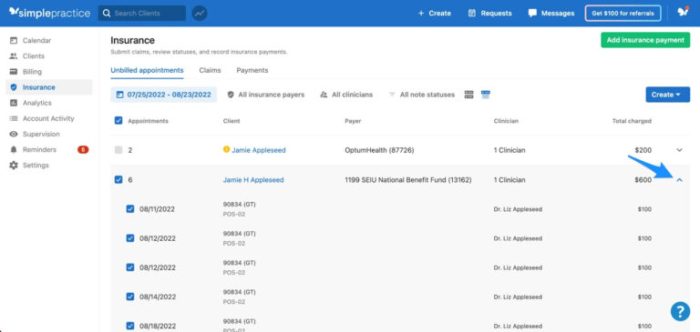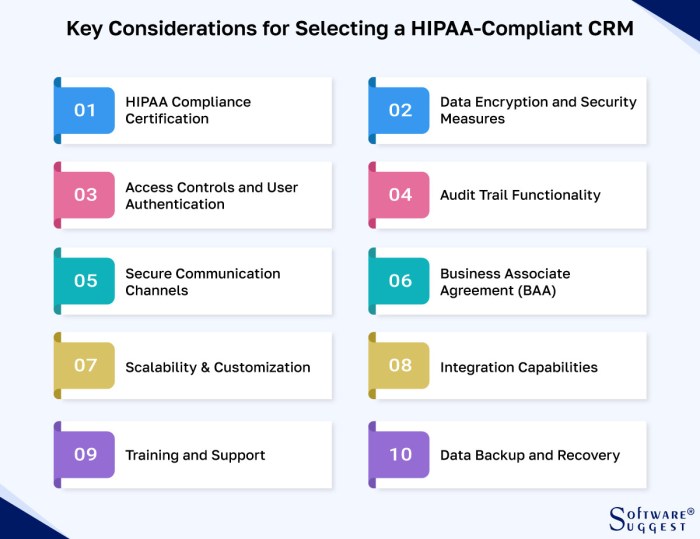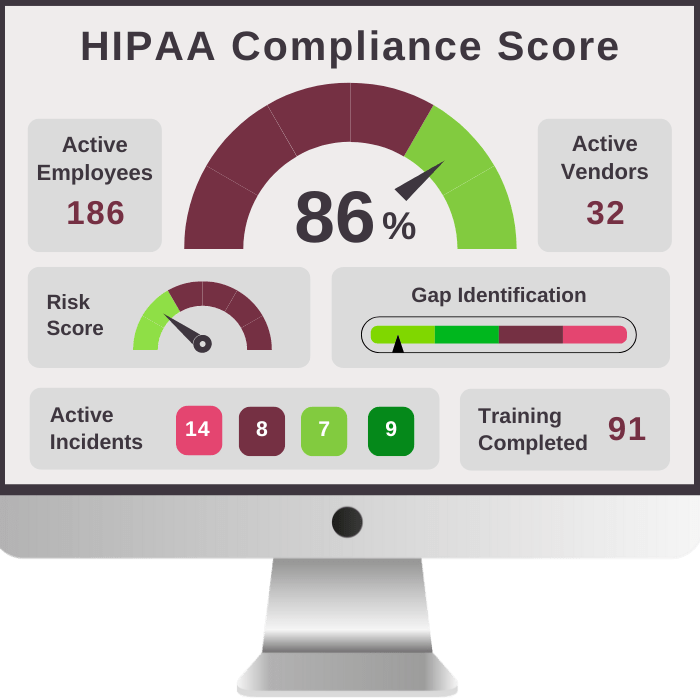Crm software hipaa compliant – In today’s healthcare landscape, protecting patient data is paramount. The Health Insurance Portability and Accountability Act of 1996 (HIPAA) sets stringent regulations for the handling of Protected Health Information (PHI). For healthcare providers and organizations managing patient data, choosing a HIPAA compliant CRM software is not just a good practice; it’s a legal necessity. This comprehensive guide will delve into the intricacies of HIPAA compliant CRM systems, helping you navigate the complexities and select the right solution for your needs.
Understanding HIPAA Compliance and CRM Software
Before exploring specific software options, let’s clarify what HIPAA compliance entails and how it relates to Customer Relationship Management (CRM) systems. HIPAA’s Privacy Rule protects the privacy of individuals’ health information, while the Security Rule establishes national standards to protect electronic protected health information (ePHI). This means that any software storing, processing, or transmitting PHI must adhere to these strict regulations.
A HIPAA compliant CRM, therefore, is one that incorporates robust security measures to safeguard patient data throughout its lifecycle.

Source: fitsmallbusiness.com
Key HIPAA Compliance Requirements for CRM Software
- Data Encryption: Both data at rest (stored on servers) and data in transit (being transmitted over networks) must be encrypted using strong encryption algorithms.
- Access Control: Strict access control measures are crucial, limiting access to PHI only to authorized personnel based on the principle of least privilege. Role-based access control (RBAC) is a common approach.
- Audit Trails: A detailed audit trail documenting all access to and modifications of PHI is essential for accountability and compliance auditing. This allows for tracking of any potential breaches or unauthorized access attempts.
- Business Associate Agreements (BAAs): If your CRM provider handles PHI on your behalf, you must have a Business Associate Agreement in place. This legally binds the provider to HIPAA compliance and Artikels their responsibilities.
- Data Backup and Disaster Recovery: Robust backup and disaster recovery plans are critical to ensure data availability and prevent data loss in the event of a system failure or security breach. Regular backups and offsite storage are essential.
- Employee Training: All employees with access to PHI must receive regular training on HIPAA compliance, including proper data handling procedures and security protocols.
- Risk Assessment and Management: Regular risk assessments are needed to identify potential vulnerabilities and implement appropriate safeguards. This is a continuous process, not a one-time event.
Choosing a HIPAA Compliant CRM: Key Considerations
Selecting the right HIPAA compliant CRM requires careful evaluation of several factors. Don’t solely rely on vendor claims; conduct thorough due diligence.
Features to Look For in a HIPAA Compliant CRM, Crm software hipaa compliant
- Built-in Security Features: The CRM should have inherent security features like encryption, access controls, and audit trails, rather than relying on add-ons or third-party integrations that might compromise security.
- Data Segmentation: The ability to segment and categorize patient data effectively is crucial for managing access and ensuring that only relevant information is accessible to specific users.
- Integration Capabilities: Seamless integration with other healthcare systems, such as electronic health records (EHRs), is essential for efficient workflow and data exchange.
- Scalability and Flexibility: Choose a CRM that can adapt to your growing needs and accommodate increasing amounts of data without compromising performance or security.
- Vendor Reputation and Track Record: Research the vendor’s reputation, experience, and commitment to HIPAA compliance. Look for certifications and evidence of successful audits.
- Customer Support and Training: Reliable customer support and comprehensive training resources are crucial for ensuring proper system usage and addressing any issues promptly.
Popular HIPAA Compliant CRM Software Options
(Note: This section is not an endorsement. Always conduct your own thorough research before selecting a vendor.)
Several CRM providers offer HIPAA compliant solutions. Researching their specific features, security certifications, and customer reviews is vital. Some examples include (but are not limited to): Salesforce Health Cloud, HubSpot (with appropriate configurations and BAAs), and specialized healthcare CRM platforms. Always verify their compliance through their documentation and independently.
FAQs: HIPAA Compliant CRM Software: Crm Software Hipaa Compliant
- Q: Is my current CRM system HIPAA compliant? A: It’s unlikely unless it’s specifically designed and configured for HIPAA compliance. You need to verify this with your vendor and potentially engage a security auditor.
- Q: What is a Business Associate Agreement (BAA)? A: A BAA is a contract between a covered entity (healthcare provider) and a business associate (vendor handling PHI) that Artikels the responsibilities of both parties in ensuring HIPAA compliance.
- Q: How much does HIPAA compliant CRM software cost? A: Costs vary widely depending on the features, scalability, and vendor. Expect a range of pricing models, including subscription-based fees and one-time licensing costs.
- Q: What happens if my CRM suffers a data breach? A: In the event of a data breach, you are legally obligated to notify affected individuals and regulatory authorities within a specific timeframe. You’ll also need to conduct a thorough investigation and implement corrective measures to prevent future breaches.
- Q: Can I use a generic CRM and make it HIPAA compliant? A: While you might attempt to add security features to a non-HIPAA compliant CRM, it’s generally not recommended. The inherent design and architecture of a HIPAA compliant CRM are crucial for robust security.
Maintaining Ongoing HIPAA Compliance
HIPAA compliance is an ongoing process, not a one-time event. Regular audits, security updates, employee training, and risk assessments are essential to maintain compliance and protect patient data.
Conclusion
Choosing a HIPAA compliant CRM is a critical decision for any healthcare organization. By carefully considering the factors Artikeld in this guide, you can select a system that effectively manages patient data while ensuring the highest level of security and compliance. Remember to always prioritize data security and engage with reputable vendors who can provide the necessary support and documentation to demonstrate their commitment to HIPAA compliance.
References
- HIPAA Privacy Rule – HHS.gov
- HIPAA Security Rule – HHS.gov
- (Add other relevant resources here, such as articles from reputable cybersecurity publications or industry-specific websites.)
Call to Action
Ready to secure your patient data with a HIPAA compliant CRM? Contact us today for a free consultation and let us help you find the perfect solution for your healthcare practice.

Source: softwaresuggest.com
FAQs
What specific security features should I look for in HIPAA-compliant CRM software?
Essential features include robust encryption (both in transit and at rest), strong access controls with granular permissions, audit trails for tracking data access, and regular security updates.

Source: hipaajournal.com
How can I ensure my CRM provider is truly HIPAA compliant?
Request documentation demonstrating their compliance, such as a Business Associate Agreement (BAA) and evidence of regular security audits and penetration testing. Verify their certifications and adherence to industry best practices.
What are the penalties for non-compliance with HIPAA regulations?
Penalties can range from significant financial fines to legal action, reputational damage, and loss of patient trust. The severity depends on the nature and extent of the violation.
Can I use a standard CRM and make it HIPAA compliant through add-ons or configurations?
While some add-ons might enhance security, it’s generally safer and more reliable to choose a CRM specifically designed and certified for HIPAA compliance from the outset.
